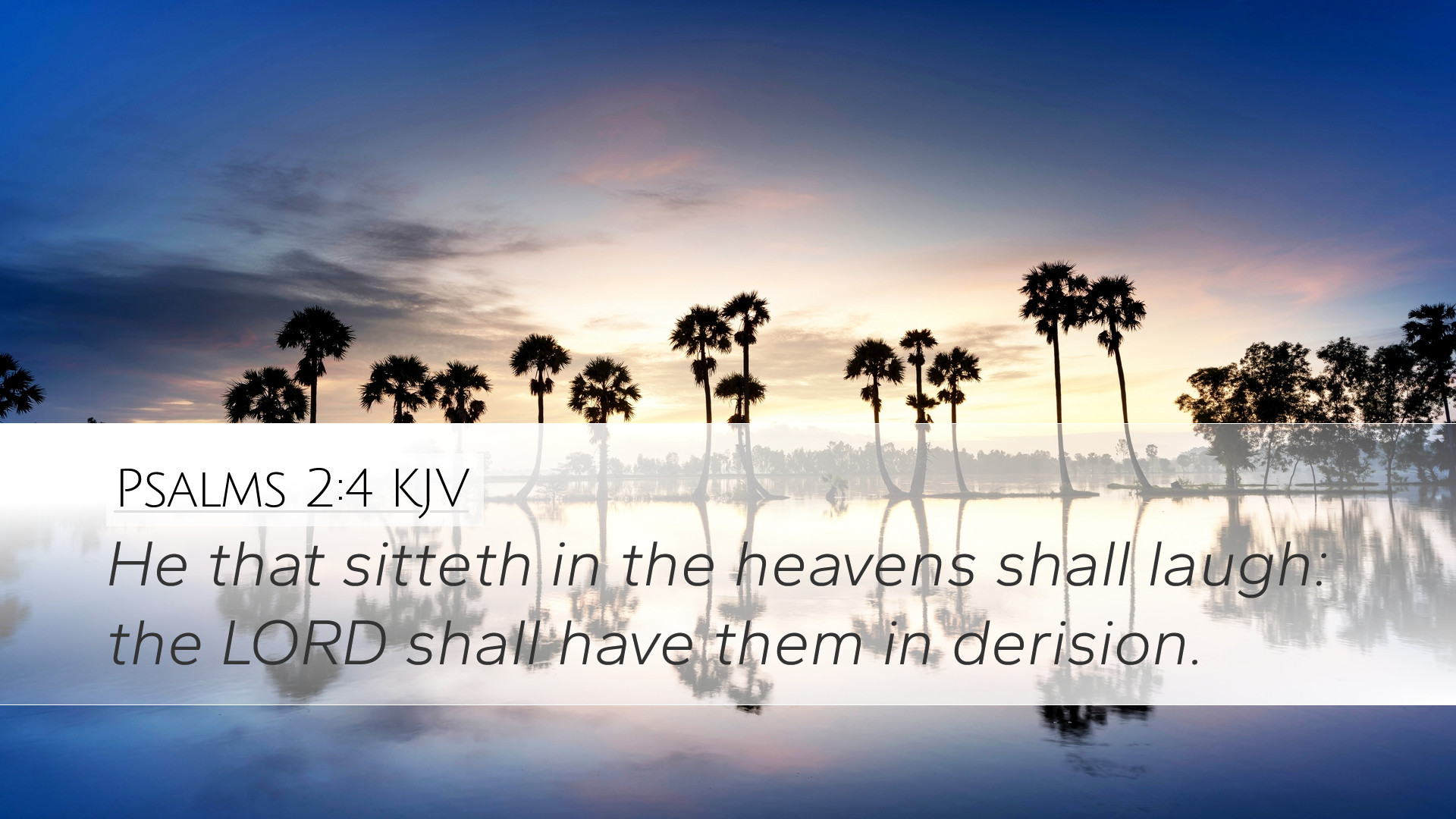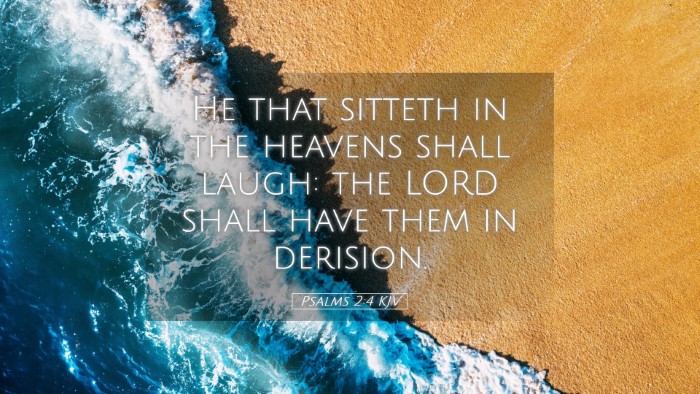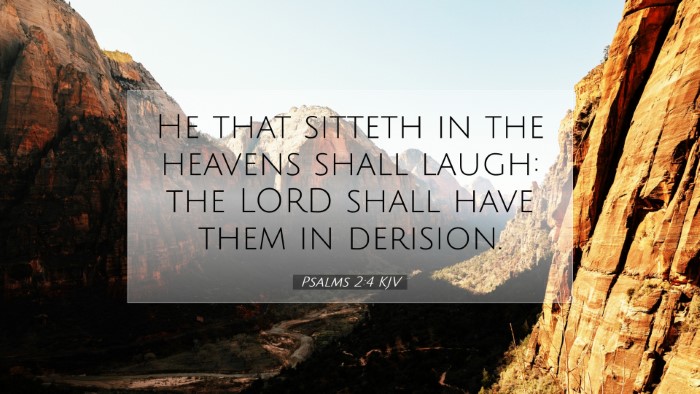Commentary on Psalms 2:4
Bible Verse: "He that sitteth in the heavens shall laugh: the Lord shall have them in derision." (Psalms 2:4)
Contextual Overview
The second psalm opens with a vivid portrayal of the nations conspiring against the Lord and His anointed. This cosmic rebellion against divine authority introduces a profound theological motif that permeates the text. The verse under contemplation illustrates the Lord's sovereign, unassailable position above earthly powers and challenges.
Theological Significance
Psalms 2:4 encapsulates the theme of divine sovereignty through the metaphor of laughter, expressing not a trivial amusement but a profound derision at the futility of human rebellion.
Divine Perspective on Human Attempts
Matthew Henry observes that God's laughter signifies His disapproval and mockery of those who oppose His will. The psalm emphasizes that no human endeavor can thwart God’s overarching plan, rendering rebellion against Him notably absurd.
Albert Barnes adds that this laughter reflects God’s omnipotence and inconquerable wisdom. Those who rise up against the Lord are portrayed as children who think they can challenge their creator, ignorant of their own limitations.
Mockery vs. Sovereignty
The phrase "the Lord shall have them in derision" indicates that not only does God laugh at the schemes of rebellious nations, but He also will actively respond to their challenges. Adam Clarke notes that this derision serves both as a warning and a promise: God will not remain passive amidst opposition but will demonstrate His power by ultimately overcoming those who oppose Him.
Reflective Implications for Believers
This verse encourages believers to view earthly struggles from a heavenly perspective. The laughter of God invites believers to recognize that God is not disturbed by earthly turmoil.
- Hope in Providence: Believers are reminded that God is sovereign over all nations and rulers. Their attempts to defy Him are ultimately ineffectual.
- Response to Oppression: In the face of hostility, this psalm encourages the faithful not to be disheartened, for God sees and responds to every injustice.
- Trust in God's Timing: The psalm embeds an assurance that while it seems the wicked prevail, divine justice will timely address their rebellion.
The Nature of Divine Laughter
It is critical to understand what divine laughter entails. It is not mere amusement but a categorical dismissal of human pretensions to autonomy apart from God.
Implications for Ministry and Theology
Pastors and theologians can draw on this psalm to expound on the nature of God's transcendence and immanence. The laughter signifies that while God is intimately involved with His creation, He remains utterly above it.
- Encouragement for the Weary: In pastoral contexts, this psalm provides comfort, affirming that God reigns amid chaos.
- Defense of Divine Authority: For theologians, it serves as a foundation for discussions on God's sovereignty, emphasizing His supremacy over earthly powers.
- Calls for Repentance: The mockery of God’s laughter can serve as a call for those in rebellion—both individually and corporately—to repent and reconcile with their Creator.
Cultural Applications
The verse also has profound implications within contemporary cultural contexts, particularly pertinent to issues of justice, governance, and morality.
- Critique of Secular Power: In a world where secular powers often oppose biblical values, this psalm serves as a reminder of God’s ultimate authority and the transient nature of human governance.
- Encouragement for the Persecuted: It offers reassurance to those facing persecution or societal rejection; God sees and will act in His time.
Conclusion
Psalms 2:4 provides a multifaceted commentary on divine laughter in the face of human rebellion. The insights from various public domain commentaries highlight the sovereignty of God and His unfaltering supremacy over human affairs. Believers are invited to find hope, encouragement, and a reminder of divine authority amidst the trials of life. The overarching theme remains that God's plans will inevitably prevail, and all attempts to oppose His will are but temporary distractions in the unfolding narrative of divine history.


